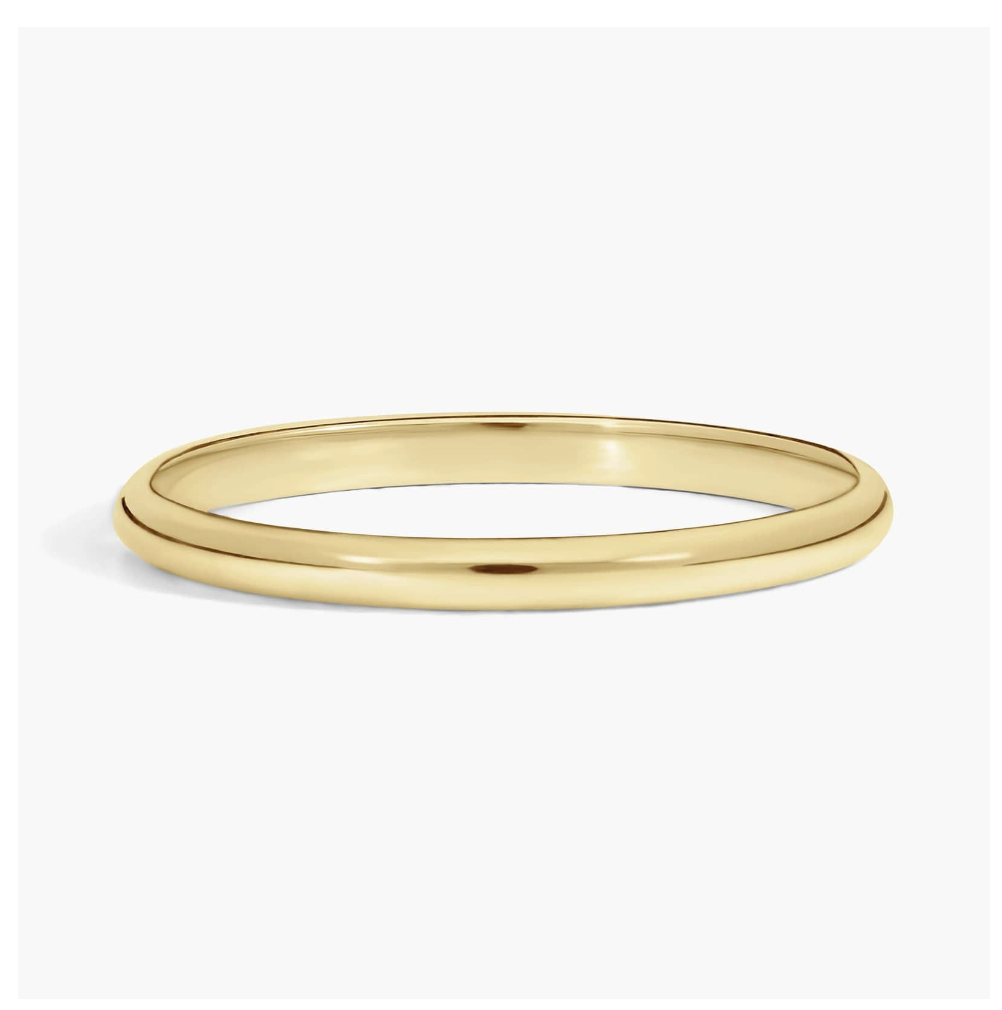14k vs 18k Gold: What Is the Difference?
The difference in the amount of pure gold in 14k vs 18k gold affects everything from price to durability to color.
3 Minute Read
Gold is the most popular engagement ring metal, but many customers struggle to understand 14k vs 18k gold. The main difference between the two is that 18k gold is made from 75% pure gold, while 14k gold is made from 58.3% pure gold. This difference in gold content affects the price, durability, vibrance of color, and even the likelihood of an allergic reaction when comparing 14k vs 18k gold.
18k Gold Contains More Pure Gold Than 14k Gold
Lower karat values of yellow gold like 14k gold and 18k gold are a mix of metals and not pure gold. The primary difference between 14k gold and 18k gold is the amount of gold in the metal mixture. 18k gold contains 75% pure gold and 25% other metals like copper, silver, or zinc. It has 18 parts gold out of 24, which is why it's called 18k.
By contrast, 14k gold usually contains around 58.3% pure gold and 41.7% other metals. It has 14 parts gold out of 24, which is why it's called 14k. (The "k" stands for "karat," which is the unit of measurement for how much gold is in the metal mixture. A higher karat number means there is more pure gold in the mix.)
14k Gold Is Cheaper than 18k Gold
at Blue Nile
Gold is a naturally occurring element often found in metamorphic rock. It has a few important qualities that have made it desirable and valuable to people, including its durability, its bright and metallic color, and its malleability.
Over time, many different cultures assigned gold a value due to its desirability and perceived value, and it also became a currency. Today, it is still considered a store of value. At the time of this article, gold prices are at historic highs at over $2600 per ounce. The lower amount of pure gold in 14k vs 18k gold is the reason 14k gold is cheaper (58.3% pure gold in 14k vs. 75% pure gold in 18k).
14k Gold Is More Durable Than 18k Gold
Pure gold is very soft and it needs to be mixed with other metals such as copper, silver, and zinc to make it more durable. The higher amount these other, stronger metals in 14k vs 18k gold (41.7% vs 25%) means that 14k gold is more durable than 18k gold. This means that 14k will be more resistant to scratching or bending than 18k gold, which is softer and may be at risk for scratches and dents.
18k Yellow Gold Has A More Vibrant Color Than 14k Yellow Gold
In yellow and rose gold, the lower percentage of pure gold in 14k vs 18k gold also affects the color. Gold jewelry made with 14k gold will appear paler and less vibrant, while 18k gold displays a richer and more vibrant color.
14k Gold May Cause An Allergic Reaction
For people with an allergy to silver or nickel, 14k gold may cause an allergic reaction. As discussed above, 14k gold alloys have a higher percentage of other metals. As a result, there's a slightly higher chance of causing skin irritation or allergic reactions for those who have sensitive skin.
14k vs 18k Gold: Which Is The Right Metal For Your Jewelry?
Due to its lower price and higher durability, we recommend 14k for jewelry that is intended to be worn every day, like an engagement ring or wedding band. For special occasion jewelry, 18k yellow and rose gold offers a richer color and higher purity, making it the better choice.
Lisa Rosen
In 2012, Donald Clark retired and passed along stewardship of the IGS to the Rosen family, who were longtime members of IGS. Lisa Rosen runs the day-to-day operation of IGS and The Ganoksin Project, a technical resource website for bench jewelers and jewelry manufacturers. Lisa strongly believes that IGS must remain a cost-effective, accurate, and comprehensive resource for all those interested in gemology. IGS is our passion, and it is a family business.
Related Articles
Trendiest Yellow Gold Jewelry In 2025
Diamond Tennis Bracelets: A Buying Guide
James Allen Diamond Cut Guide: Overview, Grades, Quality and Price
Buying Guide: Engagement Rings under $1,000
Latest Articles
800 Years of Mogok: A Celebration in Tenuous Times
What is the Average Gemstone Faceting Yield?
Pyroxmangite Value, Price, and Jewelry Information
How to Identify Emerald Simulants and Synthetics
Never Stop Learning
When you join the IGS community, you get trusted diamond & gemstone information when you need it.
Get Gemology Insights
Get started with the International Gem Society’s free guide to gemstone identification. Join our weekly newsletter & get a free copy of the Gem ID Checklist!
